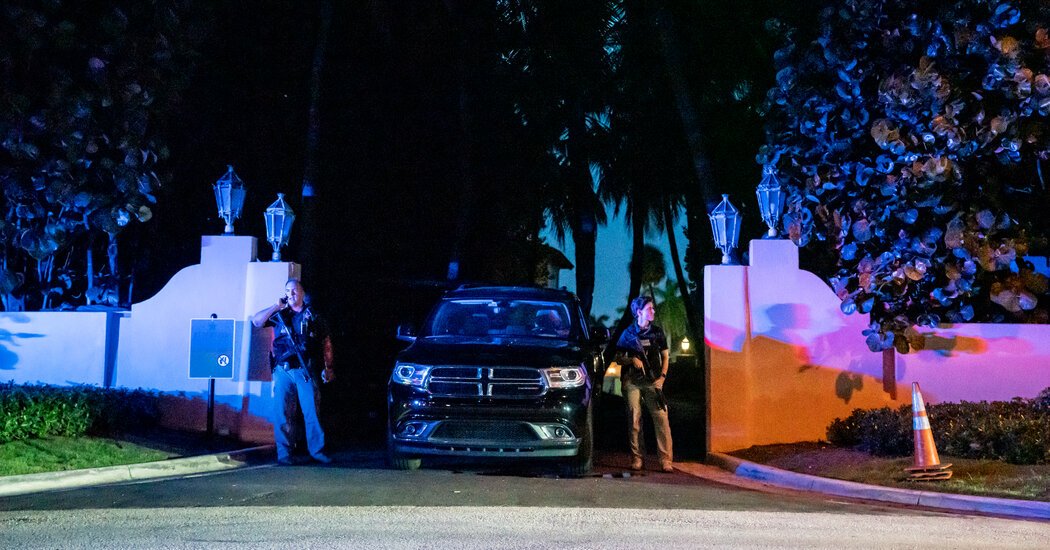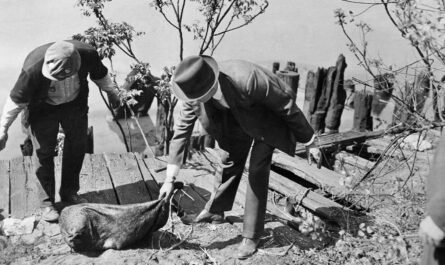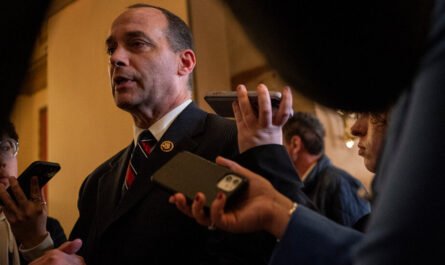For the past few months, federal prosecutors and lawyers for former President Donald J. Trump have been battling in secret over allegations of misconduct and politicization in how the government handled the investigation that led to an indictment accusing Mr. Trump of illegally holding on to classified documents after he left office.
The fight spilled into the public eye on Tuesday as the judge overseeing the case unsealed a pair of motions by Mr. Trump attacking the integrity of the inquiry and claiming that the special counsel, Jack Smith, had timed his charges to create maximum political damage.
The aggressive and often baseless filings by Mr. Trump’s lawyers amounted to a multipronged assault on the underpinnings of the classified documents case and were the sharpest articulation yet of an argument the former president has often raised on the campaign trail: that law enforcement has been weaponized against him in a series of overreaching and politically driven witch hunts.
The two filings, which were released with hundreds of pages of supporting documents, homed in on an array of investigative steps taken by the government that the defense has claimed were improper.
In filings responding to Mr. Trump’s claims, which were also unsealed on Tuesday, Mr. Smith’s prosecutors vehemently defended themselves, denying there had been any misconduct or efforts to politicize an investigation that from the start, they said, had taken a “measured, graduated approach.”
In their filings, Mr. Trump’s lawyers accused “politically biased” officials in the National Archives, the agency responsible for taking control of presidential records, of colluding with the Biden administration to open a criminal investigation of the former president even before they found classified materials in an initial tranche of 15 boxes they received from Mr. Trump in January 2022.
And they claimed, without citing any evidence, that federal prosecutors had illegally waited until last June to file their indictment against Mr. Trump in effort to disrupt his primary campaign and damage his chances in the general election this November.
“The special counsel’s office timed the charges in this case to maximize the likelihood that the prosecution would interfere with President Trump’s ability to continue with his winning campaign for the Republican Party’s nomination and to defeat President Biden,” the lawyers wrote.
In a separate motion, Mr. Trump’s lawyers asked Judge Aileen M. Cannon, who is overseeing the proceeding, to exclude from the case any evidence — including more than 100 classified documents — the F.B.I. discovered in August 2022 when agents searched Mar-a-Lago, Mr. Trump’s private club and residence in Florida.
The lawyers also asked Judge Cannon to suppress the private audio notes that prosecutors had obtained from one of Mr. Trump’s lawyers through a process that pierced the normal protections of the attorney-client privilege. The notes by the lawyer, M. Evan Corcoran, were central to the government’s allegation that Mr. Trump had obstructed the government’s repeated efforts to reclaim the classified materials he had removed from the White House.
Prosecutors called the former president’s accusations that the National Archives had colluded with the Biden administration a “conspiracy theory” based on a single misinterpreted sentence in an email in which a lawyer for the National Archives circulated a draft letter from archives officials to the Justice Department.
The prosecutors dismissed Mr. Trump’s claims that they had delayed filing his indictment to give Mr. Biden a “tactical advantage,” asserting that “the investigation and charges were driven solely by the facts and the law.” They noted that, since the indictment was filed, the former president’s lawyers have often accused them of proceeding too quickly in moving the case toward trial.
They also said that the warrant authorizing the search of Mar-a-Lago had been properly approved by a federal magistrate judge and was needed because “Trump possessed a trove of documents with classification markings and engaged in obfuscation and deception to retain them.”
As for Mr. Trump’s attempts to keep a jury from hearing Mr. Corcoran’s audio notes, prosecutors said a federal judge in Washington had already determined that the attorney-client privilege could be set aside in this case under a provision known as the crime-fraud exception, which allows prosecutors to get around the protective measure if they believe a crime has been committed.
The two unsealed filings were initially submitted in February to Judge Cannon, who is hearing the case in her home courthouse in Fort Pierce, Fla. But their release was delayed for months as she worked with the defense and prosecution to redact the names of witnesses and other sensitive information from the text, a time-consuming process that has slowed down the issuance of several other motions as well.
It is not clear when Judge Cannon will rule on the motions from Mr. Trump’s team or if she will schedule hearings on them.
Many of Judge Cannon’s decisions have played into Mr. Trump’s overarching strategy of seeking to postpone any trial until after the election in November. Earlier this month, the judge said she would not select a trial date until at least the end of July.
The newly released filings were only one salvo in a larger barrage of motions that Mr. Trump’s lawyers have launched to attack the classified documents indictment. The lawyers have already questioned the legality of Mr. Smith’s appointment and argued that Mr. Trump is protected from prosecution by executive immunity.
They have also claimed that prosecutors unfairly and vindictively charged the former president given that other public officials, like President Biden, were not indicted after being found in possession of classified materials.




